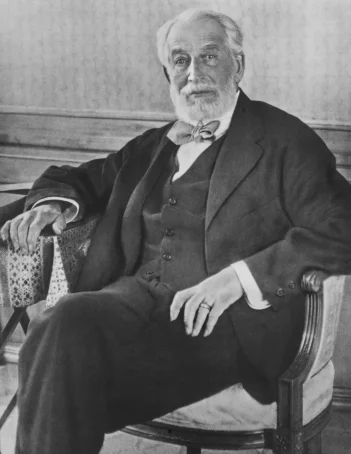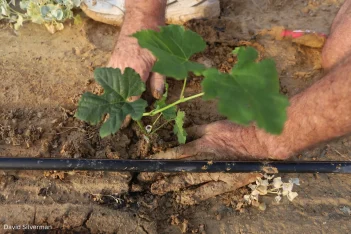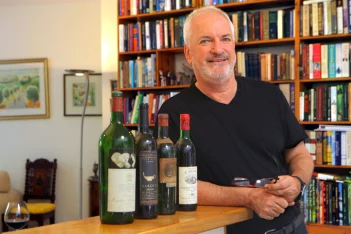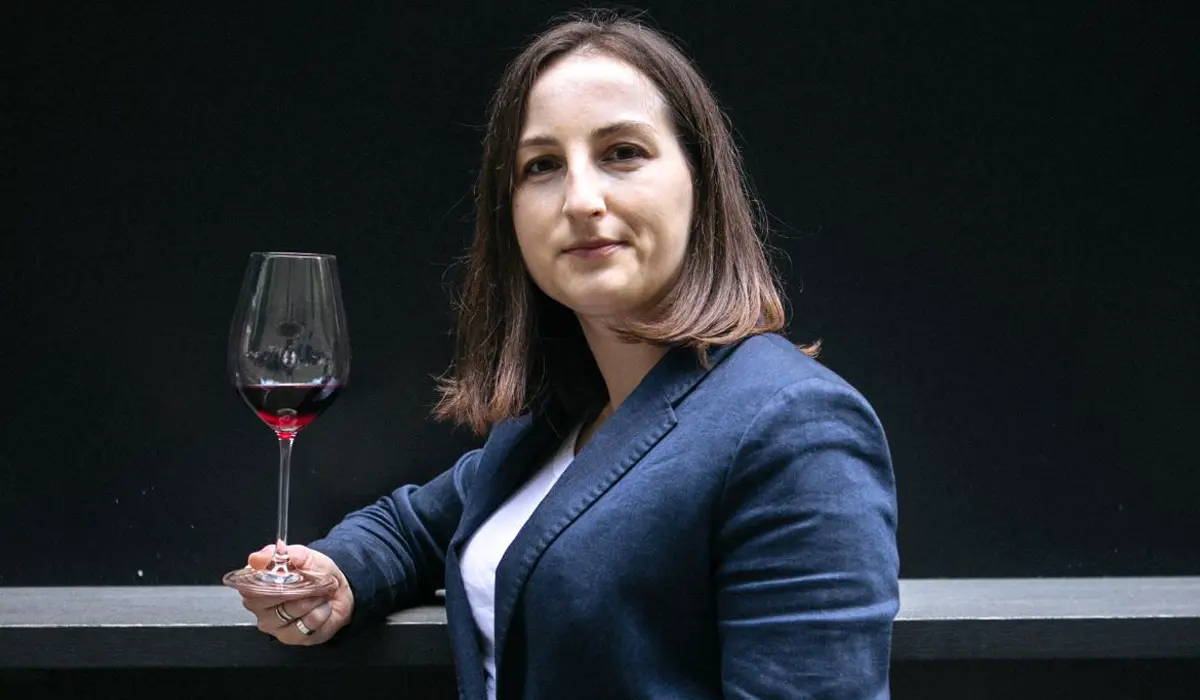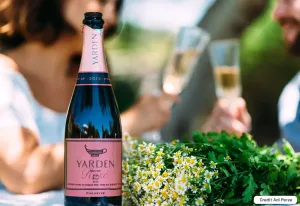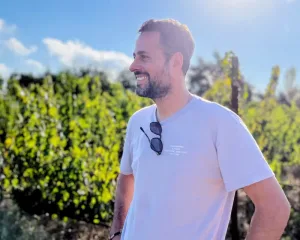Vladimir Putin’s kamikaze drones have been launched indiscriminately across Ukraine and recently on civilians in Kyiv, their capital. The bombardment from the Russian army was typically brutal, murderous and a designed to cause fear, panic, the maximum mayhem, and to crush the spirit of the Ukrainian people.
A similar article to this was previously published in the Jerusalem Post.
On October 17th 2022, this questionable policy, which reeks of War Crimes at every turn, had a result that may have satisfied Putin’s generals, but which shocked the wine world to the core. One of these drones landed and exploded on a home on Zhylianska Street, and in the ruins, rescuers found a young woman, lying in the arms of her husband, both dead, along with their family cat. Unfortunately, this scene has not be so unusual in this war, which does not observe niceties, or the rules of the Geneva Convention.
However the young woman had a name, she was known as Vika, and her husband was called Bohdan. Her full name was Victoria Zamchenko, and she was a mere 34 years old. Vika had a profession, and very successful career as a sommelier, and she also taught in a wine school. She was talented, eager to learn, was well-known in her industry and appreciated in fine-wine circles. Vika had studied the WSET (Wine and Sprit Education Trust) Course Level 3 and had dreams of becoming Ukraine’s first Master of Wine. She also had her private life and had hopes entitled to every young woman, namely the right to start a family. The tragedy was compounded and magnified by the fact Vika was six months pregnant at the time. Certainly her tastevin, wine glass and spittoon must have caused great fear to the Putin war machine. I hope he feels vindicated at having eliminated this most serious threat. What a waste! What a horrible reminder of the horrors of war, and of the barbarism of the savage Russian military. At the time of this tragedy, I urged the wine trade and wine lovers to light a candle in her memory. It at least reminds those blasé about war, for whom the Russian Ukrainian altercation has become routinely boring, to wake up with a start and realize what is going on while many look the other way. The tragedies of death, those maimed, injured and psychologically scarred for life, are too many to count or quantify in words. This is happening on a daily, hourly basis while the rest of the world has the luxury of carrying on with a normal life. Please do not let the horror of what is happening fall from your eyes. As for Vika, may her memory be a blessing…and a reminder.
Victoria Zamchenko worked for GoodWine, a sister company of The Wine Bureau, major players in the quality fine wine market in Ukraine. The Wine Bureau is an importing and distribution company, founded in 2006 by Dmitry Krimsky and a university friend, who both studied Mathematics together. Their retail branch, GoodWine, followed in 2007. Their flagship store is on Mechnikova Street, Kyiv, which is an emporium of food and wine. The company is always expanding and progressing, including opening a new store and distribution company called Sabotage Wines, which focuses on natural wines. They also have wine bars and restaurants, including the Lucky Restaurant Vinotheque, an award winning restaurant with the largest wine list in the country. They are arguably leaders in wine culture in a country where volume wines are in decline, but appreciation of quality wines is on the up.
The Wine Bureau and GoodWine import, distribute and sell wines from all the classic regions and a few rarer ones, including Israel and Lebanon! From here, they represent the Golan Heights Winery and Domaine du Castel, arguably our two most famous wineries. The Golan Heights Winery was the pioneering Israeli winery and they are champions of the Golan wine region. Castel was leader of the small winery boom and pioneer of the Judean Hills. Both represent the revolution in wine quality in Israel.
I was inspired to be able to meet Dmitry Krimsky, founder and owner of GoodWine and the Wine Bureau. He has connections to Israel because he has a sister living in Ashdod. Apart from Yarden & Castel, he also loves the wines of Margalit Winery. He gave me the impression of being dynamic and efficient. Within a few hours of my contacting him, we were able to arrange a WhatsApp video meeting during his short stop in Warsaw. His PR team sent me photos and information at my request so quickly, it was almost before I asked for them. He is also passionate about food and wine. The successful businessman in our epicurean world, is normally one underpinned by passion. However this was a wine company that has had to deal with so much more. For him, it is not possible to take refuge in the wine bubble and ignore all around him. He was quite clearly devastated by Vika’s story and much of our discussion was his heartfelt feelings and a tribute to her character, work ethic and professionalism.
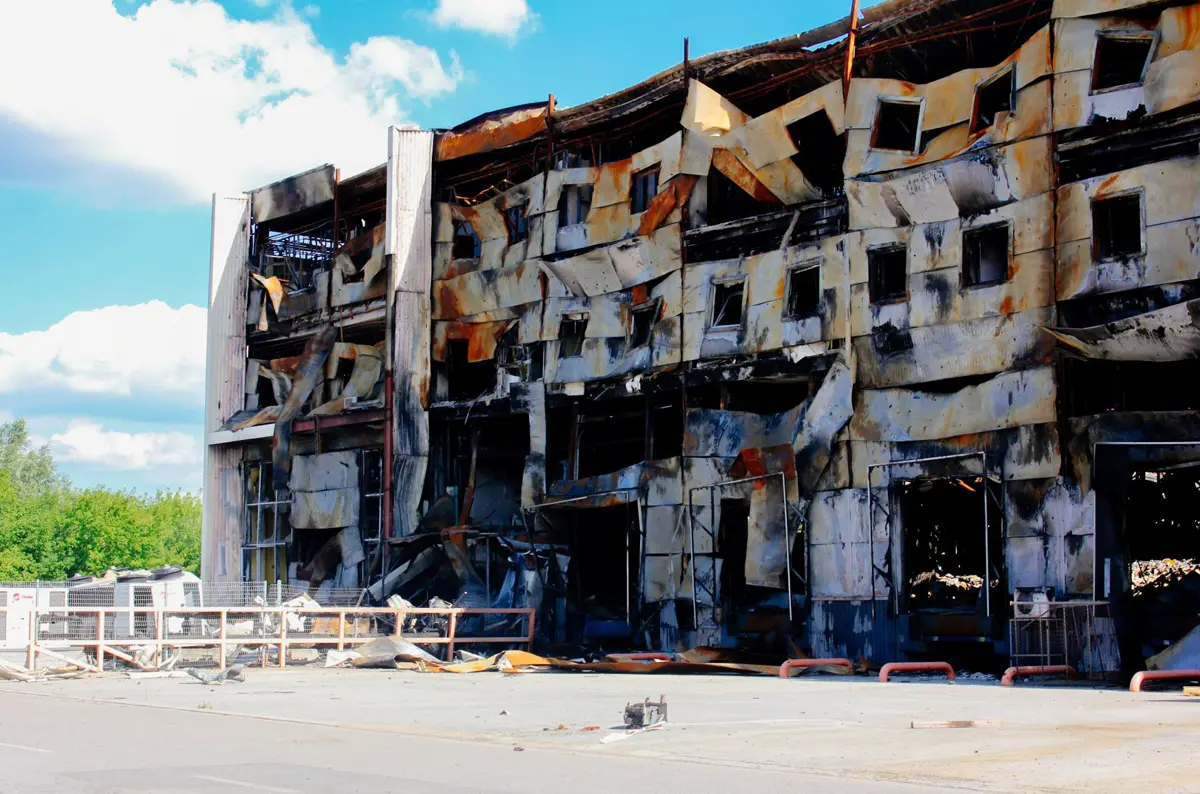
I asked him how he had been since the war started on February 24th 2022. He put me right straight away, explaining that for them, the war really began in 2014 when Russia invaded Ukraine. Of course! We forgot that; Shame on us. If you remember, the West was apathetic then, giving Putin all the encouragement he needed to try it again this time. From the very beginning, Dmitry Krimsky’s companies have taken the high road operating with compassion and responsibility. Even when alcohol sales were banned in the first months of the war, GoodWine stayed open as a grocery store, coffee house and bakery. This was an important symbolic move for locals, giving the message life goes on. Furthermore the company rose to the needs of the day diverting efforts, manpower and resources to humanitarian aid and fundraising, as they became embroiled in the national fight for survival.
However, the war suddenly became more personal. On March 4th, a Russian bombardment destroyed the company’s main warehouse near Kyiv. This warehouse kept fine wines from all over the world, including some valuable library wines, they were especially collecting for the future. The sum of the loss was EUR 15 million. Amid the twisted metal and broken glass, lay the inventory, dreams and vision of the partners. The staff went through the rubble meticulously, saving the unbroken bottles they could, but the photos show the absolute devastation. These precious surviving bottles will one day, hopefully, be symbols of a great victory.
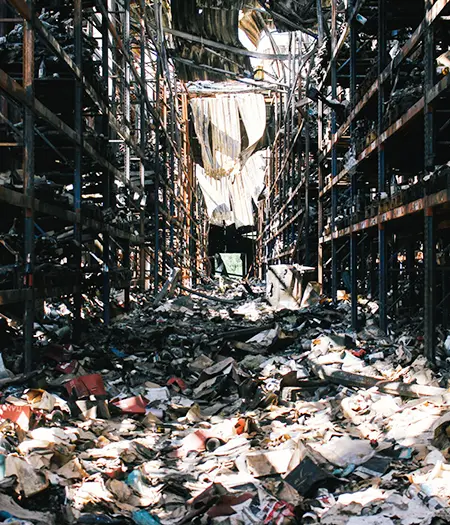
Traditionally, Ukrainians mainly consume beer and spirits like vodka, rather than wine. However more and more consumers are reverting to wine, particular those that have learnt to enjoy it on their travels overseas. The Ukrainian wine industry is mainly situated in the south, near the Black Sea. Most vineyards are near Odessa, but also reach to Mykolayiv and Kherson. We regularly hear these names in the news reports. They have 40,000 hectares of vineyards, excluding Crimea. In Israel we have 5,500 hectares – just to put it in perspective. They have planted international classic varieties, like Cabernet Sauvignon, Merlot, Sauvignon Blanc and Chardonnay. These vie with the Georgian variety Rkatsiteli and their own local varieties such as Odesa Black and Telti-Kuruk. I have not come across Ukrainian wine yet. When I do I will give it a great deal more thought and attention than I would have a year ago. I have heard about their sparkling wines which I think are often made to accommodate those with a sweet tooth. Apart from this, much of the market was geared to producing bulk wine. However, their most famous wine region is the Crimea, which since 2014 has been occupied by Russia. This represents a third of Ukraine’s total vineyard area.
Massandra is the historic winery of the Crimea. It was founded in 1894 and was originally built for Tsar Nicholas II. In 1918 the winery was nationalized. After the Russian Revolution, Stalin ordered that all the wine spread out in the storerooms of various palaces, should be returned the winery’s own cellars. Just before the Nazis invaded Crimea, the complete inventory of fine wine was packaged up and sent by horse and cart to Georgia for safe keeping. Later, the wine was painstakingly returned. When Ukraine became independent of the Soviet Union, Russia stopped trading with the winery. Following the annexation of Crimea by Putin, the winery returned into Russian hands. Putin even went there in 2014 with the leader of Italy, showing how important he regarded the winery for bragging rights. The winery is well-known to connoisseurs and collectors in the west for its unique collection of wines covering its long history. Many of these are sweet and fortified wines.
Back to the present., Dmitry Krimsky told me that when the ban on alcohol was lifted, there was simply no mood to drink wine. Everyone had more important things on their mind. However, as the war continued, people’s attitudes have gradually changed. The situation remains pretty grim. Many families remain separated. The men stayed put to fight and hold the fort. Women and children went away to friends and relations until things became quieter. Russian bombing is more often than not aimed at civilian targets. Apart from those maimed or killed, mental health is a real issue. Keeping up the spirits of the Ukrainians is essential. The continued support of the rest of the world is crucial. The West and Nato need to continue to supply weaponry, but individuals can also support humanitarian charities. Every shekel helps. Sometimes, when all is fraught and the tension is never ending, a glass of wine is all there is that gives a feeling of normality. So gradually, the Ukrainian wine lover is starting again drink wine. As Dmitry Krimsky explained to me: “Sometimes we think, if we don’t open that bottle now, when will we do it?” He went on: “If we can’t be optimistic, we have nothing.”












